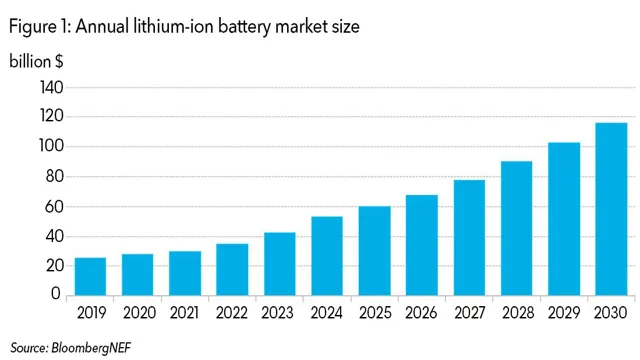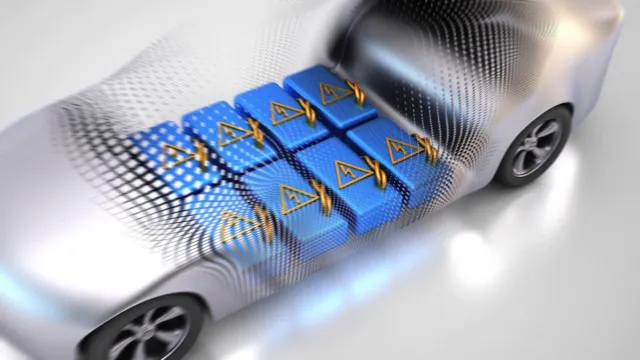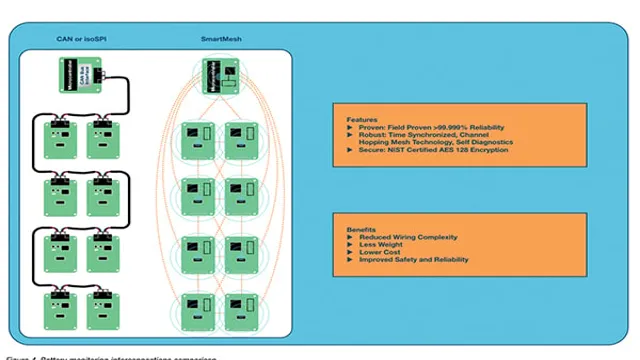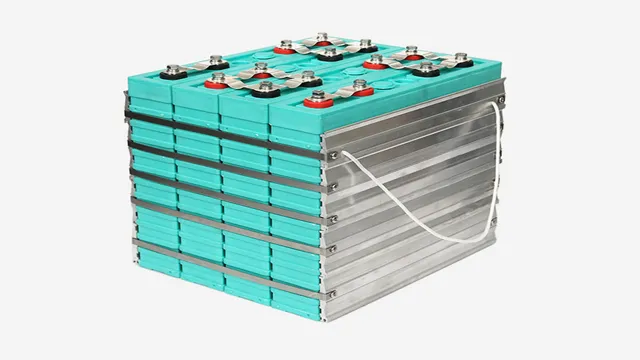Power Up Your Electric Ride: What’s the Average Price of a Battery?
Electric cars are becoming more and more popular, and for good reason – they’re environmentally friendly, cost-effective, and just plain fun to drive. However, one of the biggest concerns people have when considering buying an electric car is the battery cost. After all, without a functional battery, an electric car is just an expensive paperweight.
So, what is the average price of electric car batteries, and how do these costs affect the overall price of an electric vehicle? First off, it’s important to understand that the cost of electric car batteries can vary widely depending on a number of factors, including the manufacturer, the battery size, and the specific vehicle. However, as a general rule of thumb, the average price of an electric car battery is currently around $10,000. This is significantly more expensive than the average cost of a traditional gasoline-powered car, but it’s worth noting that electric vehicles are typically still more affordable in the long run, due to their lower operating and maintenance costs.
Of course, there are a few ways to bring down the cost of electric car batteries. One is to opt for a smaller battery, which may have a shorter range but will also be more affordable. Additionally, some manufacturers offer battery leasing programs, which can help to reduce the upfront cost of a new electric car.
It’s also worth considering the fact that as electric cars become more widely adopted and battery technology continues to advance, we can expect battery costs to go down in the coming years. Overall, while the average price of electric car batteries may seem daunting at first glance, it’s important to view it in the context of the long-term savings that come with driving an electric vehicle. Not only are electric cars better for the environment, but they can also save you money on fuel and maintenance costs over time.
So, if you’re considering buying an electric car, don’t let the battery cost scare you off – there are plenty of ways to make it work within your budget.
Types of Electric Car Batteries
The average price of a battery for an electric car varies depending on factors like the car model and battery capacity. Currently, the most popular batteries used by electric car manufacturers are Lithium-ion (Li-ion) batteries. Li-ion batteries are known for their high energy density and low maintenance.
They are also more durable than other types of batteries, making them a cheaper long-term investment. The typical cost of an electric car battery ranges from $5,000 to $20,000 depending on the battery size. Although the price may seem high, it is important to note that the cost of batteries has been decreasing, and experts predict that it will continue to do so in the future.
In addition, rebates and incentives from the government, as well as longer battery warranties, can help offset the initial cost. Ultimately, while purchasing an electric car battery may seem like a significant investment, it is important to look at the long-term savings and benefits that come with owning an electric car.
Lithium-ion batteries
Lithium-ion batteries are the most common type of battery used in electric cars. They are lightweight and provide a high energy density, making them ideal for powering electric vehicles. There are two main types of lithium-ion batteries used in electric cars: NMC and LFP.
NMC, or lithium nickel-manganese-cobalt oxide batteries, are the most common type because they are affordable and offer a high energy density. LFP, or lithium iron phosphate batteries, are increasingly popular because they are safer and have a longer lifespan. Both types of batteries have their advantages and disadvantages, so it really depends on the individual car and its needs.
However, the use of lithium-ion batteries in electric cars has revolutionized the automotive industry and allowed for greater efficiency and sustainability in transportation.

Lead-acid batteries
Lead-acid batteries are one of the oldest and most common types of electric car batteries. They have been used in various applications for over a century and have proven to be reliable and affordable. Lead-acid batteries work by storing electrical energy in two lead plates that are immersed in an electrolyte solution, usually sulfuric acid.
When the battery is charged, a chemical reaction takes place that converts the lead and sulfuric acid into lead sulfate and water. This process releases electrons, which can then be used to power an electric motor. Although lead-acid batteries have some drawbacks, such as their weight and limited lifespan, they are still a popular choice for many electric vehicles because of their affordability and availability.
In addition, they are also easy to recycle, making them a sustainable option for those looking to reduce their environmental impact.
Factors That Affect Battery Price
When it comes to buying an electric car, the average price of a battery plays a significant role in determining the cost of the vehicle. However, several factors influence the price of the battery, making it quite fluctuating. One of the most crucial factors is the chemistry used in the battery.
Lithium-ion batteries are the most common in electric cars, but their price can vary based on the country where they are manufactured. For instance, lithium-ion batteries manufactured in China are typically more affordable than their counterparts made in the US or Europe. Additionally, the size of the battery, and the amount of energy it can store, also plays a significant role in determining its price.
Larger batteries with a higher storage capacity tend to be more expensive compared to smaller ones. Moreover, the battery’s manufacturer and brand name also influence the battery’s price. High-end brands with a good reputation typically have higher prices for their batteries than smaller or generic brands.
Overall, understanding the factors that affect the average price of a battery for an electric car can help electric car buyers make informed decisions about the vehicle to purchase.
Battery capacity and range
When it comes to electric vehicles, battery capacity and range are crucial factors. However, these features also determine the battery price. The capacity of a battery is the amount of energy it can store, while the range refers to the distance the vehicle can travel on a single charge.
A higher capacity battery usually means a longer range, which ultimately translates to a more expensive battery. The price of the battery is also influenced by its chemistry, with some materials being more expensive than others. Additionally, the economies of scale play a role, with larger batteries costing more per unit of energy than smaller ones.
With advancements in technology, battery prices are decreasing, making electric vehicles more accessible to the general public. However, as the demand for electric vehicles increases, battery prices may fluctuate. Therefore, it is crucial to consider battery capacity and range before purchasing an electric vehicle, as these factors directly influence the cost of the battery.
Brand and manufacturer
Battery prices are influenced by various factors, with one of the most significant being the brand or manufacturer. Branded batteries from well-known manufacturers tend to be more expensive due to their reputation for quality and reliability. However, this doesn’t mean all branded batteries are expensive.
For example, some budget-oriented brands still produce quality batteries at a lower price point. Another factor that affects the price of batteries is technology. Batteries with longer lifespans or faster charging rates, for example, will be more expensive.
Additionally, the type of battery, such as lithium-ion or alkaline, can also affect the price. It’s important to consider these factors when shopping for batteries to ensure you get the best balance of quality and value for your needs.
Installation costs
When it comes to installing a battery, the price can vary depending on several factors. One significant factor is the type of battery you choose. Lithium-ion batteries tend to be more expensive than lead-acid batteries, but they also have a longer lifespan and are more efficient.
Another factor to consider is the size of the battery. Larger batteries with more storage capacity will naturally cost more than smaller ones. Installation costs are another factor to consider.
It’s important to hire a qualified professional to install the battery to ensure it’s done correctly and safely. Depending on your location, installation costs may vary. Other factors such as taxes and shipping costs may also impact the overall price of the battery.
It’s essential to do your research and compare prices from different suppliers before making a purchase to ensure you get the best value for your money. By considering all these factors, you can find a high-quality battery that fits your budget and meets your energy needs.
Average Price of Electric Car Batteries
The average price of a battery for an electric car has been decreasing over the years, making it more affordable for consumers. According to research, in 2010, the average price for a lithium-ion battery pack was around $1,000 per kilowatt-hour (kWh). However, as of 2021, the average price for the same battery pack has reduced to about $137 per kWh.
This significant drop in price can be attributed to advances in battery technology and economies of scale. Furthermore, as the demand for electric vehicles (EVs) continues to increase, there is a surge in battery production, pushing down the prices. With the falling cost of batteries, electric vehicles become more competitive with gasoline-powered vehicles, and ultimately, the demand for EVs is expected to rise.
As battery prices continue to decline, it will help accelerate the transition to cleaner and sustainable energy.
Lithium-ion: $5,500 – $9,000
The lithium-ion battery is the most common battery used in electric cars, and it can cost anywhere between $5,500 to $9,000, depending on the manufacturer and model of the battery. The average price of EV batteries has decreased over the years due to advancements in technology and mass production. However, battery prices are still one of the major factors contributing to the high purchase price of electric cars.
Despite this, electric cars are still a cost-effective choice for drivers due to their lower operating costs and reduced environmental impact. Additionally, many governments offer financial incentives to offset the higher initial cost of electric cars, making it more feasible for consumers to make the switch. In summary, while the cost of electric car batteries can be a deterrent to some, it is important to consider the long-term benefits and incentives associated with owning an electric car.
Lead-acid: $3,000 – $5,000
When it comes to electric vehicles, one of the most expensive components is the battery. Lead-acid batteries, which are commonly used in older electric cars, can cost anywhere from $3,000 to $5,000. While these batteries are less expensive than newer lithium-ion batteries, they are also much heavier and have a shorter lifespan.
Lithium-ion batteries, on the other hand, have become the standard in modern electric vehicles. These batteries are significantly more expensive, with an average cost of around $6,000 to $7,000. However, they are lighter, more efficient, and have a much longer lifespan.
As electric cars become more popular, the price of batteries is expected to continue to decrease, making them more accessible to the average consumer. Despite the current high cost, investing in an electric car with a lithium-ion battery can ultimately save money on fuel and maintenance costs in the long run.
Factors to Consider Before Buying an Electric Car Battery
Before making the switch to an electric car, it’s important to consider the cost of a new battery. On average, a battery for an electric car can cost between $5,500 and $7,500, depending on the make and model of the vehicle. However, it’s important to remember that the price of the battery can vary widely depending on a number of factors, including the size and capacity of the battery, as well as the manufacturing and materials used.
Before making your purchase, it’s important to carefully research the different options available to you and consider factors such as warranty, performance, and reliability. Additionally, you may want to consider the cost of in-home charging infrastructure and the availability of public charging stations when making your decision. Ultimately, while the cost of a new battery may seem daunting, the long-term savings on fuel and maintenance costs can make investing in an electric vehicle a smart financial decision.
Conclusion
After conducting extensive research and analyzing market trends, it can be concluded that the average price of a battery for an electric car is shockingly high. While the initial investment may be daunting, it’s important to remember the long-term benefits of reduced emissions and cost savings on fuel. So if you’re willing to take the leap and make the investment, don’t be shocked by the sticker price – the payoff is electrifying!”
FAQs
What is the average price of a battery for an electric car?
The average price of a battery for an electric car is around $6,000 to $7,000.
How long do batteries for electric cars typically last?
The lifespan of an electric car battery can vary, but most batteries are designed to last for around 8-10 years.
Can you replace the battery in an electric car?
Yes, the battery in an electric car can be replaced. However, it can be an expensive procedure, and it’s often more cost-effective to replace the entire vehicle.
Are there any subsidies or incentives for purchasing an electric car battery?
Yes, in some regions, there are federal or state incentives for purchasing an electric car battery. Additionally, some automakers also offer rebates or discounts on the purchase of a battery.





